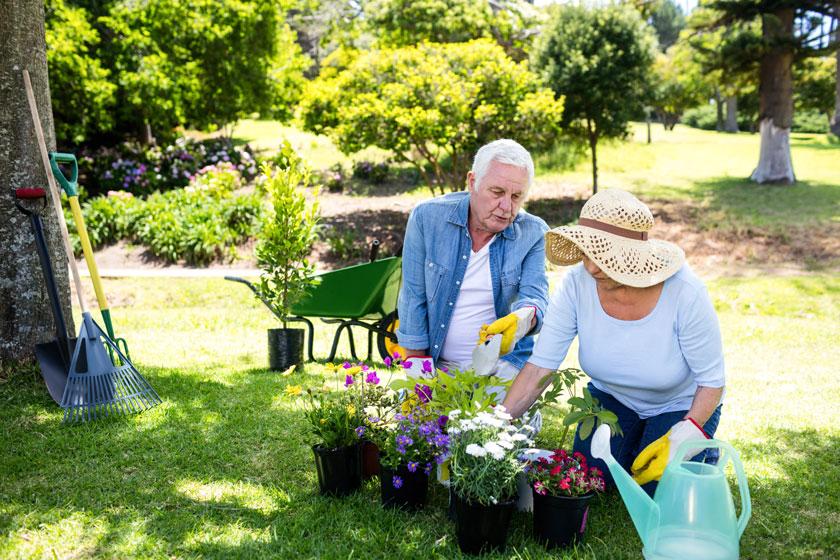Memory care homes in Hope Hills, NC, provide a nurturing environment for your loved ones living with dementia, offering specialized activities tailored to their needs. These activities are designed not only to engage but also to enhance the well-being and quality of life of the residents. Let’s explore the variety of activities that can keep your aging family member engaged and connected.
Personalized Activities for Enhanced Engagement
Each individual in a retirement community has unique interests and abilities, especially those living with dementia. Personalized activities cater to these individual preferences, promoting a sense of identity and self-worth. Team members in memory care communities take the time to know your loved one’s hobbies and past career to tailor activities that resonate with their personal history and interests.
Incorporating personal history into daily activities can spark joy and engagement. Whether your family member enjoyed gardening, painting, or playing an instrument, these activities can be adapted to their current abilities, providing a sense of continuity and recognition.
Cognitive Stimulation Activities
Cognitive stimulation is crucial for individuals with dementia, aiming to maintain or improve cognitive function. Activities such as puzzle-solving, memory games, and interactive technology tools are commonly available in memory care communities. These activities are designed to stimulate thinking, concentration, and memory recall in a fun and engaging way.
Brain games tailored to the cognitive level of each resident ensure they are challenging yet achievable, providing a sense of accomplishment and boosting self-esteem. Regular participation in these cognitive activities can help slow down the progression of memory loss, contributing to a better quality of life.
Physical Exercise Tailored to Ability
Physical activity is vital for maintaining mobility, flexibility, and overall health. Memory care homes in Hope Hills, NC, offer a range of physical exercises tailored to the abilities of their residents, such as chair yoga, gentle stretching, or walking groups. These activities are not only beneficial for physical health but also for mental well-being, reducing symptoms of depression and anxiety.
Exercise routines are adapted to ensure they are safe and enjoyable for everyone, regardless of their physical capabilities. Regular physical activity can also improve sleep patterns and increase appetite, two common issues faced by individuals with dementia.
Art and Music Therapy
Art and music therapy have been shown to have profound effects on individuals with dementia, offering ways to express themselves non-verbally and recall memories. Memory care communities often incorporate these therapies into their daily activities, allowing residents to explore their creativity through painting, drawing, or crafting.
Music therapy sessions, including sing-alongs, music listening, and instrument playing, can evoke emotions and memories, providing comfort and joy. These therapies offer therapeutic benefits, reducing stress and promoting a sense of calm and happiness.
Social Interaction and Group Activities
Social interaction is key to preventing feelings of isolation and loneliness in individuals with dementia. Memory care communities facilitate group activities such as shared meals, movie nights, and group discussions to encourage socialization among residents. These activities provide opportunities for your loved one to connect with others, share experiences, and foster a sense of community.
Team members are trained to facilitate interactions and ensure that all residents feel included and valued, regardless of their communication abilities. Engaging in social activities can enhance mood and improve overall well-being.
Sensory Stimulation
Sensory stimulation activities are crucial for dementia care, helping to evoke memories, reduce agitation, and enhance the connection with the environment. Activities such as aromatherapy, tactile stimulation with different textures, or tasting sessions with familiar flavors can provide comforting and stimulating experiences.
Memory care communities utilize sensory gardens, tactile art, and memory boxes filled with personal items to stimulate the senses and evoke positive memories. These sensory experiences are tailored to individual preferences, providing personalized therapeutic benefits.
Innovative Technology for Engagement
Memory care communities embrace innovative technology to keep residents engaged and connected. Interactive touch-screen devices and virtual reality experiences are utilized to stimulate cognitive function, reminisce about past experiences, and explore new interests. This blend of technology and traditional activities offers a holistic approach to dementia care.
Memory Care Communities: Providing a Supportive Environment
Memory care homes in Hope Hills, NC, are dedicated to providing a supportive and stimulating environment for your loved ones with dementia. Through a variety of tailored activities, residents can enjoy cognitive stimulation, physical exercise, creative expression, social interaction, and sensory engagement. These activities are not just pastimes but are integral to enhancing the quality of life, dignity, and well-being of each individual. By choosing a memory care home that prioritizes engaging and meaningful activities, you ensure that your aging family member receives the care, respect, and joy they deserve in their golden years.







